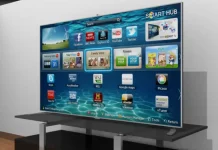4G was the breakthrough technology that allowed Big Tech (Internet companies) to become global giants. This revolution happened rather imperceptibly, many of us did not even realize when this new world emerged. However, thanks to the increased speed of data transfer, Internet companies have turned from, though promising, but still niche (that is, offering their product, not for everyone), to the world.
5G has every chance of repeating the same revolutionary path. And today I would like to talk about how exactly.
How 5G can impact our life, explained
It is no secret that countries have already begun to compete in the 5G space, although the technologies that can unlock the full potential of these networks are still in their infancy. These technologies include, for example, virtual reality, remote surgery, and self-driving cars.
The bottom line is that 4G was pretty much the same. The first 4G towers started operating in the U.S. in December 2009, but many of the Internet companies that benefited most from the new Internet speeds either appeared after the launch of 4G or substantially changed their business strategies.
Still, 4G has brought the U.S. global leadership in mobile technology and strengthened its position in information technology. If it were not for the new Internet speeds, services like Netflix, Facebook, Snapchat, Uber, and Airbnb would hardly be so global.
If you rewind time back 11 years, in many ways it’s hard to imagine that no one predicted the emergence of a global, big app-related business back then. This is confirmed by Robert M. McDowell is a former member of the Federal Communications Commission. And it’s hard to predict what will change with 5G, but we can assume that many companies, or even start-ups that don’t look very promising right now, will get a boost and become the new global leaders.
However, while with the deployment of 4G the winner was known in advance, with the deployment of 5G the U.S. is so far behind, with China, South Korea, and Japan leading the way. China has already commissioned about 1.2 million 5G base stations. And the total number of subscribers who have access to 5G coverage has exceeded 400 million.
It is important for the U.S. not to lag behind because the country could lose some of its competitive advantages in global markets.
What innovations would be boosted by 5G
4G technology has accelerated data transfer and allowed services like Instagram, Snapchat, and Netflix to become truly global. It is unlikely that without sufficient data transfer speeds, users would be interested in such services. In fact, 4G has allowed many interesting ideas to come to fruition and become a routine part of them.
By some estimates, 4G leadership has generated about $150 billion in revenue for U.S. companies and added about 2 million jobs in related industries.
But most importantly, it is a change in the way of life and the global economy, which has changed the style of competition and the distribution of labor in the world markets. And the emergence of 5G could lead to even more changes, especially considering that device companies are already ready for the new technology, and many new smartphone models support 5G.
The main advantage of 5G is almost instantaneous data transfer speeds. Of course, if we’re talking about downloading data to your smartphone, that doesn’t sound all that impressive. However, if we’re talking about, for example, self-driving cars, then 5G could be a real breakthrough in that industry.
5G will boost the Internet of Things
Personally, I am quite skeptical about the Internet of Things, but 5G could have a significant impact on the industry. 5G will allow more devices to connect to cell towers, and that will allow manufacturers to use the Internet of Things in more elements. Just a few examples: sensors for monitoring livestock on farms and for monitoring soil in fields, sensors in home furniture and devices, and even chips embedded in car parts.
Moreover, the rapid data transfer speeds that 5G can provide will facilitate the development of remote surgery using robots. But more importantly, 5G will allow for even more automated production, including automated factory management.
Another important area is the development of continuous health monitoring technology, which will allow information to be collected and sent to your doctor to avoid complications in case of health problems.
Of course, all of these technologies are available now, but 4G imposes serious limitations. First of all, it is the number of devices connected to the Internet. 4G supports about 650 devices per square mile, while 5G has 500 times that number, about 350,000 devices per square mile.
In addition, 5G will use less electricity, so it will make devices more energy efficient.
Will 5G become a real breakthrough?
It’s a popular opinion, shared by many US officials, that gaining an advantage in 5G is very important for maintaining American leadership in the economy and innovation. However, there are also doubts about how much of a breakthrough 5G can become. Some even compare 5G to the French supersonic Concorde aircraft, which turned out to be a commercial failure because the time savings did not match the too high price.
Moreover, technologies such as self-driving cars may have trouble receiving a 5G signal in bad weather, so they will still rely more on embedded computers.
As for the Internet of Things, in many ways such devices will be connected to Wi-Fi, effectively negating the importance of 5G networks.
But most importantly, many analysts are not at all sure how much of a 5G network race will make sense. As an example, Japan was a leader in launching 3G but failed to capitalize on the fact that most services in that country were focused on the domestic market.
Now companies have become more global and have offices all over the world, so a few months or even a year behind any country would not be critical.






